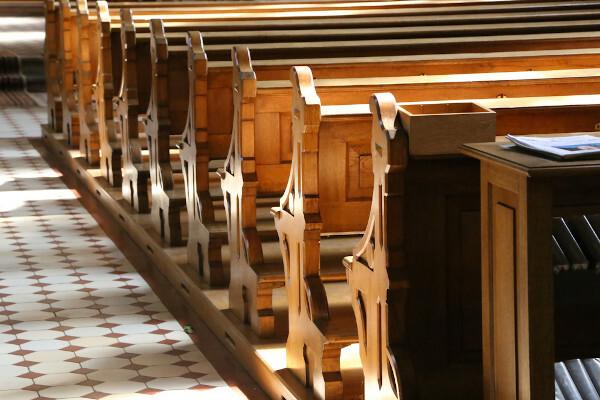Institutionssocial they are organizations of society that exist so that there is organization and social cohesion. They are the ones who pass the rules and norms of society for citizens and trains them as citizens belonging to a particular social group. We can consider as social institutions: the family, the school, the work, the Church and the State. Social institutions act in the socialization process, aiming at the adequacy of each individual in the social group.
See more: Contractualism - human socialization through a social contract
Characteristics of social institutions
We must take into account that, for social life to be carried out, it is necessary that certain institutions act as mediators of the conflict between individuality and collectivity.
We human beings live in society and we have the dual task to develop ourselves as individual and social beings. While individual beings, we must adapt to individual life, but while social beings, we need to conform to certain norms morals and social that allow peaceful life among members of the same group.

Social institutions are human creations so that there is a true social integration, without conflicts and with the same predominant ideologies. In this sense, social institutions act in the homogenization of the dough, making everyone act and think the same way, avoiding chaos.
Social institutions serve as mediators between individual life and private life, giving people the opportunity to fit into the ways of life and standardssocial, so that there is no divergence between individual life and social life.
Read too: Moral values and their importance to society
What are social institutions for
Generally speaking, social institutions serve to make social life less aggressive. Social morality is a created need for people to live according to norms and rules that impose respect between individuals.
In this sense, social institutions act as mediators in the process of socialization of the human being, causing there to be respect for certain social precepts. They are, therefore, formative and educational, working in the cohesionSocial.

Social institutions for Émile Durkheim
the classic sociologist Emile Durkheim he was an advocate of the role of social institutions in the composition of society. Also a defender of capitalism, he thought of society as a cohesive whole that needs institutions for its composition. For Durkheim, there are two forms of social cohesion:
Mechanical solidarity: it is characteristic of pre-capitalist societies, whose organization is based on closer points of cohesion and in which there is no great distance between its members. Everything works like a great mechanism.
Organic solidarity: it is the one in which there is a formation of a social organism, with several different organs that have an internal cohesion between them. This type of cohesion is typical of capitalist societies, which divide social formation into different groups.
For Émile Durkheim, social institutions are a way to guarantee the order of society, being links that unite citizens around a social formation. For the sociologist, there are two forms of socialization that separate social institutions:
Socializationprimary: it is provided by the first institutions with which the individual comes into contact. The main one is the family. It is based on the norms of affectivity.
Socializationsecondary: it puts the individual in contact with other forms of socialization, contacting individuals outside the family. It is based on stricter social norms that are external to the individual and the family group. They are the Church, the school, the work and the State.

What are the main social institutions
Social institutions accompany us since our insertion in the world divided into societies. We can list them this way:
Family: it is the first institution we have contact with. It teaches the first rules we must follow and guides us to the first steps expected by society. This institution is based on affection for the teaching of rules that we must absorb and take to social life.
Church: it is the second institution with which the majority of the population has contact. At religions point out the social and moral norms that must be followed by the population of a given culture, thus becoming very important. As the rules of this institution leave family life and become more general, it is considered an institution of secondary socialization.
School: it is the secondary socialization institution par excellence. She is responsible for introjecting in the individual the social, legal and behavioral norms that he/she should take for the rest of your life, in addition to preparing you for the next two social stages, work and State.
Work: it is the social institution for which all individuals are prepared in capitalist society. It consists of a set of norms and rules that must be performed by the individual for the correct functioning of society, in Durkheim's view. This stage of life is the largest and most important stage of coexistence in society, and it requires the application of everything that was learned in the previous stages of socialization.
State: it consists in the formation of a conglomeration of social norms and rules that make up the previous social institutions. The State is the last and most complex social institution, as it needs the primary socialization promoted by families and all the other steps described. The State is made up of norms and rules governed by a body of laws. It is in the State that we find the greatest impersonality and the most technical way of acting in civilized societies.
by Francisco Porfirio
Sociology Professor
Source: Brazil School - https://brasilescola.uol.com.br/sociologia/instituicoes-sociais.htm
